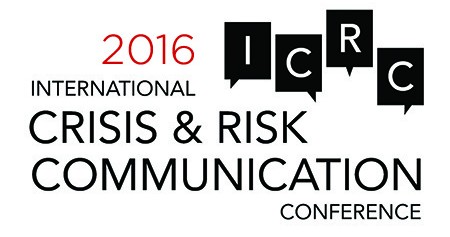
Professor, TELUQ
Télé-Université (Montréal, Québec)
Canada
Professor at Télé-Université (Montréal, Québec) since February 2009, Anne-Marie studied communications, more specifically organizational communication and public relations at Université du Québec à Montréal (UQAM) and Simon Fraser University (SFU) in British-Columbia, Canada. Her teaching and research interests are related to the major functions of corporate communication departments within organizations, PR professionals’ perceptions of their own roles and decision-making power, civil society’s expectations of PR practitioners and ultimately, the wide range of PR practices. During the course of the last years, her researches gave her the opportunity to meet a great diversity of people: communication specialists, consultants, journalists, members of advocacy and lobbying groups, elected officials, etc.
2015
Communication in times of crisis: hazardous tool or effective strategy?
This presentation reveals the results of a qualitative study of corporate senior managers’ perceptions of crisis communication. A company uses various means and techniques to prepare for a potential crisis. The example most often mentioned is the crisis management plan. Communication generally plays a vital role in these plans. According to Libaert (2009, p. 3), crisis management is 80% communication. We might therefore be inclined to believe that communication for an organization facing a crisis is a clearly defined concept whose practices are well established. But is that really the case?
Although crisis communication is now recognized as a corporate communications branch (Bland, 1998; Heiderich, 2010; Libaert, 2005; Ogrizek, 2000; Tixier, 1991), it has been shown that many companies adopt crisis management strategies that end up tarnishing their image and their credibility, and can have a highly negative impact on the parties involved. Total silence, evasion, systematic denial and looking for scapegoats are generally considered poor communication strategies. If these strategies only exacerbate the effects of a crisis, why are they still being used? In order to answer this question, we conducted a qualitative study whose aim was to analyze how corporate managers perceive the role that communication plays, or should play, during a crisis. Thirty semi-structured interviews of presidents and vice-presidents of large companies that had experienced crises in the past five years were conducted in order to determine the importance that senior managers place on communication in times of crisis. An analysis of the verbatim transcripts led us to identify five major themes that explain why some strategies are used instead of others. They are as follows: difficulty implementing the communication strategies outlined in the crisis management plan (where such a plan exists), issues related to social media and the speed at which information spreads, issues involving relations with the “traditional” media, and the need to control and centralize information. Analyzing these themes led to the conclusion that senior managers are ambivalent about how they view the role of crisis communication: when the crisis occurs, communication is seen as both a management tool and a weapon that can backfire against the company if used improperly.


